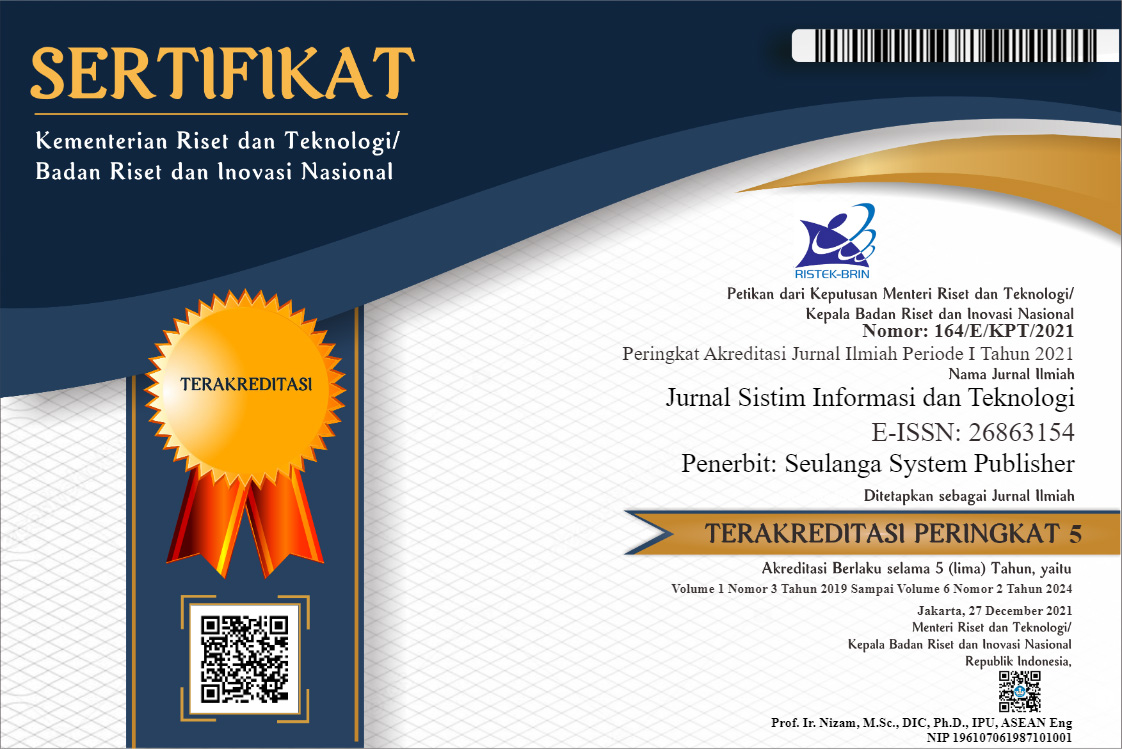Analysis of The Influence of Information Availability, Economic Factors and Changing Trends on Travel Agent Business Sustainability in Digital Era
DOI:
https://doi.org/10.60083/jsisfotek.v6i2.344Keywords:
Travel Agent, Economic Value Added, Competitive, EvolutionAbstract
The goal of this study is to identify key factors in travel agent management and then differentiate their impact on the value creation of these companies. Researchers group methodologies for analyzing value creation in travel agencies into several main categories. The methods are interview and economic-financial analysis. Then we identify value creation indicators to determine economic value-added options, then we conduct empirical contrast. The research results reveal that travel agents, acting as intermediaries, have become highly relevant, absorbing nearly all industries of this sector's production. The historical analysis concludes that travel agents underwent a positive evolution in value creation during the studied period. The revolution in information technology, which increased staff productivity, and the process of sector concentration and association, which increased rotation, are the main factors driving this evolution. Investments in financial assets, tangible assets, and intangible assets also play an important role in transforming the sector's productive structure. While the evolution of margins plays a less significant role in value creation, the sector faces challenges due to price wars and strong competition. The positive impact of the sector's debt also increased, contributing to a significant increase in economic value-added. Finally, travel agents need to pay attention to these factors in their management in order to remain competitive and achieve their ultimate goal of creating value in this sector.
References
Chauhan, C., Dhir, A., Akram, M. U. I., & Solo, J. (2021). Food Loss and Waste in Food Supply Chains: A Systematic Literature Review and Fremework Development Approach. Journal of Cleaner Production, 1-14.
Perdana, M. A. C., Sulistyowati, N. W., Ninasari, A., & Mokodenseho, S. (2023). Analisis Pengaruh Pembiayaan, Skala Usaha, dan Ketersediaan Sumber Daya Manusia terhadap Profitabilitas UMKM. Sanskara Ekonomi Dan Kewirausahaan, 1(03), 135-148.
Irwansyah Rezeki, S. R., Dharmawan, D., Azlina, Y., Purwanti, & Kespandiar, T. (2024). Analysis of The Influence of Promotion Through Digital Marketing and Effectiveness of Marketing Communication on Customer Decisions in Hospitality Industry. Jurnal Informasi Dan Teknologi, 6(2), 1-6. https://doi.org/10.60083/jidt.v6i2.521
Budaya, I., Haryono, G., Chatra, A., & Desi, D. E. (2022). Marketing Communication For Colleges Through The WordOf-Mouth Method. International Journal Of Artificial Intelegence Research, 6(1).
Hill R. P. & Nydick, R. (1992). Using the analitic hierarchy process to structure the supplier selection procedure. International Journal of Purchasing and Materials Management, 28(2), 31-36.
Aria Elshifa, A., Afdhal Chatra, A., Tiara Fathulmila Matiala, T., Faisal Yasin, F., & Sabil Mokodenseho, S. (2023). Analisis Pengaruh Pendidikan, Pelatihan, dan Dukungan Kelembagaan terhadap Keberhasilan Usaha Mikro. Sanskara Ekonomi Dan Kewirausahaan, 1(3), 123-134.
Hendy, T., Resdiansyah, R., Johanes, F. A., & Rustono, F. M. (2020). Exploring the role of ICT readiness and information sharing on supply chain performance in coronavirus disruptions. Technol. Rep. Kansai Univ, 62, 2581-2588.
Nainggolan, H., Nuraini, R., Sepriano, S., Aryasa, I. W. T., Meilin, A., Adhicandra, I., ... & Prayitno, H. (2023). GREEN TECHNOLOGY INNOVATION: Transformasi Teknologi Ramah Lingkungan berbagai Sektor. PT. Sonpedia Publishing Indonesia.
Limei, H., Tannady, H., & Nurprihatin, F. (2018). Meminimumkan Biaya Transportasi pada Capacitated Vehicle Routing Problem dengan Metode Heuristik. SEMRESTEK 2018, 605-613.
Lediana, E., Perdana, T., Deliana, Y., & Sendjaja, T. P. (2023). Sustainable Entrepreneurial Intention of Youth for Agriculture Start-Up: An Integrated Model. Sustainability, 15(3), 2326.
Arjang, Prakoso, T., Apriliani, R., Mertua Agung Durya, N. P., & Pattiasina, V. (2024). Analysis of The Influence of Information System Applications, Digital Trainings and Technology Adoption on Financial Information System Performance. Jurnal Informasi Dan Teknologi, 6(1), 250-254. https://doi.org/10.60083/jidt.v6i1.510
Sharma, M. K., Bhagwat, R., & Sharan, G. (2005). Practice of Performance Measuremnet: Experience from Indian SMEs. Internation Journal of Globalization and Small Business, (2), 183-213.
Shukla, M., & Jharkharia, S. (2013). Agri-fresh produce supply chain management: a state-of-the-art literature review. International Journal of Operations dan Production Management, 33(2), 114-158.
Tannady, H. (2019). Process improvement to reduce waste in the biggest instant noodle manufacturing company in South East Asia. Journal of applied engineering science, 17(2).
Downloads
Published
How to Cite
Issue
Section
License
Copyright (c) 2024 Jurnal Sistim Informasi dan Teknologi

This work is licensed under a Creative Commons Attribution 4.0 International License.









